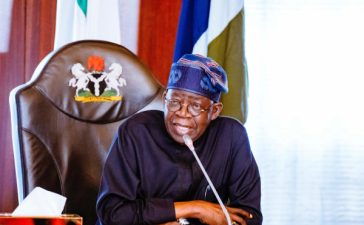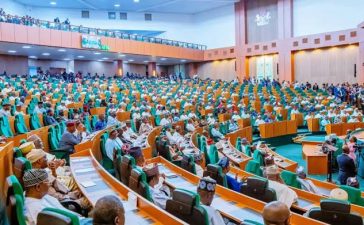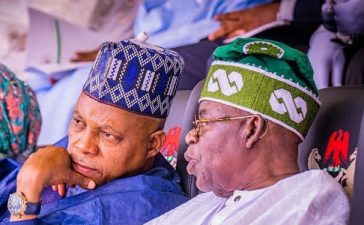Vice-President Kashim Shettima has said that the bold economic reforms introduced by President Bola Tinubu’s administration are designed to reposition Nigeria for sustainable growth and development, despite resistance from vested interests.
Shettima made the remarks on Wednesday while hosting executives of the Nigerian Association of Chambers of Commerce, Industry, Mines, and Agriculture (NACCIMA) at the Presidential Villa in Abuja. The delegation was led by the association’s National President, Mr. Jani Ibrahim.
Reiterating the government’s commitment to economic revitalisation, Shettima said Tinubu’s policies—such as the removal of fuel subsidy, exchange rate unification, and ongoing tax reforms—were necessary for creating an environment conducive to business growth.
“I can assure you that Nigeria is ready for business, and you are the drivers of change,” Shettima told the delegation.
“I plead guilty to romancing with the business community, the manufacturing and productive sectors. This is how great nations are built; this is how Korea became what it is.”
He said President Tinubu remains undeterred by opposition from entrenched interests, insisting that the reforms are in the best interest of Nigerians.
“The oil cabal fought back, but he refused to budge. He stood his ground because he acted in the best interest of Nigerians,” Shettima added.
Earlier, NACCIMA President Jani Ibrahim congratulated Shettima on his leadership of key economic bodies, including the National Economic Council (NEC), National Council on Privatisation (NCP), and the Presidential Enabling Business Environment Council (PEBEC).
He stressed the importance of strong government-private sector collaboration and called for bi-annual consultative sessions between the Vice-President’s office and organised private sector stakeholders.
“We recognise the private sector as the engine of growth while the government sets the enabling framework,” Ibrahim said, urging inclusion of private sector representatives in government councils and technical committees focused on trade, industry, and MSMEs.







